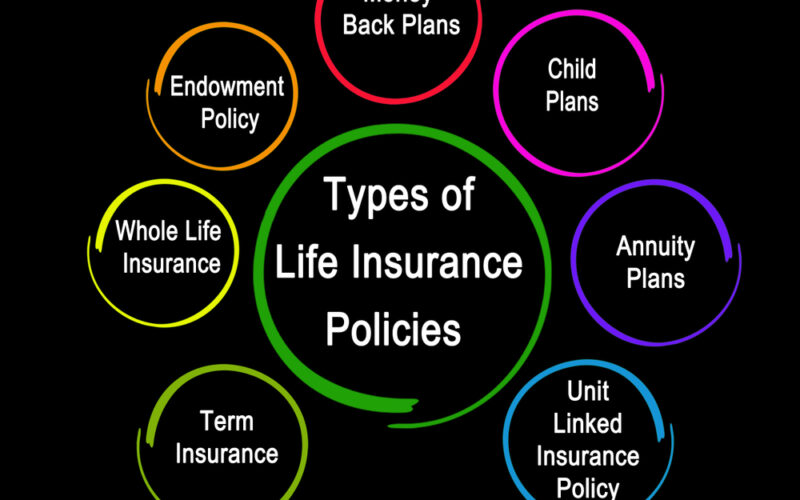If you’re looking for life insurance basics and information on the types of life insurance policies available, you’ve come to the right place. Life insurance is an important decision that many people make to protect their families and loved ones in the event of their passing. In this blog post, we’ll explain the different types of life insurance and how they can help you and your family in the future. Keep reading to learn about life insurance basics and the various types of insurance policies available.
Whole life insurance
Understanding life insurance can be a daunting task, especially for beginners. Whole life insurance is one of the most popular types of life insurance and is designed to last throughout your entire lifetime. It provides coverage for the duration of your life and typically builds cash value over time. The cash value is based on several factors including the premium payments and the performance of the insurer’s investments.
Whole life insurance policies are more expensive than other types of life insurance due to their longevity and cash-value accumulation. There are two types of whole life insurance: guaranteed issue and simplified issue. Guaranteed issue policies are available to everyone, regardless of age or health, but have lower coverage amounts. Simplified issue policies require applicants to answer health questions but offer higher coverage amounts.
Whole life insurance policies are a great option for those looking for a long-term insurance policy that offers protection and the potential to accumulate cash value. For those looking for the most comprehensive coverage, whole life insurance is the ideal choice.
Term life insurance
Term life insurance is one of the most popular types of life insurance policies available today. It’s a great option for those who are looking for a policy with a lower premium than Whole or Universal life insurance, but still want the peace of mind that comes with having life insurance coverage.
Term life insurance is a basic life insurance policy that covers you for a set period, or “term”. This could be 10, 20, or even 30 years, depending on the policy you choose. The death benefit amount remains the same throughout the entire length of the policy, and if you outlive the term, the policy will expire without any value.
There are two main types of term life insurance: guaranteed issue and simplified issue. Guaranteed issue means that there is no medical exam required, while simplified issue requires you to answer a few health questions to qualify. Both types of policies can provide coverage at an affordable rate, making them a great option for those who are looking for life insurance for beginners or life insurance for dummies.
Group life insurance is also another popular option when it comes to term life insurance. It’s offered through employers and associations and can provide coverage to multiple people at once. The rates are usually lower than those of an individual term life policy, making it a great option for families or individuals looking for more affordable coverage.
Overall, term life insurance is an affordable way to get the coverage you need without breaking the bank. If you’re looking for a low-cost option for your life insurance needs, this might be the right choice for you.
Universal life insurance
Universal life insurance is a type of life insurance policy that provides flexible premiums, cash value buildup, and death benefit protection. It is a more complex life insurance product compared to Whole Life insurance or Term Life insurance, so it is important to understand the features before committing to a Universal Life policy.
Universal life policies allow the insured to vary their premium payments based on their current financial situation and pay the premiums at any time within certain limits. The cash value component of the policy accumulates over time, allowing the policyholder to borrow against the accumulated cash value for various financial needs such as college tuition, a down payment for a home, etc. This can be a useful feature for those looking for a policy with more flexibility than Whole Life or Term Life insurance.
There are two types of Universal Life policies available: Guaranteed issue and Simplified issue. Guaranteed issue life insurance requires little or no medical examination and typically offers lower benefits. Simplified issue life insurance requires some medical information but also offers higher death benefits than guaranteed issue life insurance. Group life insurance is another option for those who are part of an employer’s group plan, with lower premiums and simplified application process.
Understanding the different types of life insurance policy options is the first step in making sure you are getting the right coverage for your needs. Universal life insurance provides a unique level of flexibility, cash value buildup, and death benefit protection which can be beneficial in certain circumstances. Be sure to speak with an insurance professional to determine if Universal life insurance is right for you.
Variable universal life insurance
Variable universal life insurance (VUL) is a type of life insurance that combines the features of whole life insurance and universal life insurance. VUL gives policyholders the ability to choose investments, such as stocks and bonds, to increase their death benefit or cash value. VUL also has flexible premium payment options and adjustable death benefits, allowing you to customize your policy to fit your individual needs. VUL is different from whole life insurance in that it offers more flexibility about premium payments and death benefits. With VUL, policyholders can adjust their premiums as needed and can choose from a variety of investment options. Additionally, VUL allows policyholders to withdraw or borrow money from their cash value, something that is not allowed with whole-life insurance.
VUL is an ideal choice for individuals looking for a long-term investment that provides life insurance protection. It can be used for retirement planning, estate planning, and financial goals. VUL is also beneficial for individuals looking for a way to supplement their income in retirement. With VUL, individuals have the potential to earn a significant return on their investment if the market performs well.
Overall, variable universal life insurance is an excellent way to combine the protection of life insurance with an investment opportunity. It provides policyholders with flexibility and control over their policy while giving them the potential to earn a return on their investment. Understanding the features of VUL will help you make an informed decision when deciding on a life insurance policy.
Survivorship life insurance
Survivorship life insurance is a type of life insurance policy designed to provide financial protection for the beneficiaries of two people, typically spouses or partners. With this type of policy, the death benefit is paid out only after the passing of both individuals. Survivorship life insurance is also known as second-to-die life insurance or joint life insurance.
The primary purpose of survivorship life insurance is to provide financial protection for heirs and loved ones in the event of the death of both insured parties. This type of policy can be used to cover estate taxes, fund charitable donations, and provide financial support for heirs.
There are several types of survivorship life insurance policies available. Whole life insurance policies are one option, which offers a level premium and guaranteed cash value. Universal life insurance is another option, which provides more flexibility than whole-life policies and allows the policyholder to adjust the death benefit and premiums. Finally, variable life insurance policies offer policyholders the ability to invest in different stocks, bonds, and mutual funds within the policy.
Survivorship life insurance can be an important part of any financial plan, providing security and peace of mind for your family and loved ones. To learn more about this type of life insurance and other life insurance explained topics such as whole life insurance explained, universal life insurance explained, variable life insurance explained, and group life insurance explained, contact a trusted financial advisor today.
Annuities
Annuities are an insurance product that can provide a source of income in retirement. They are designed to help you achieve your financial goals by allowing you to receive a steady stream of income during retirement. Annuities are offered as both variable and fixed products, and they are usually funded with a lump sum payment or a series of payments made over time.
Variable annuities offer the growth potential and provide a wide range of investment choices. They come with some downside risk, however, because their value can fluctuate with the market. Fixed annuities guarantee a steady rate of return and also offer a death benefit.
For those who are looking for an additional source of income in retirement, an annuity can be an effective solution. With an annuity, you can control when and how you want to receive your payments, and you will have the security of knowing that your money is safe from market losses. Annuities are also tax-deferred, so you can enjoy tax benefits while growing your nest egg.






